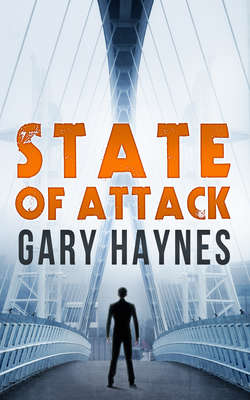Читать книгу State Of Attack - Gary Haynes - Страница 20
ОглавлениеChapter 11
Ibrahim was sitting at a dark wooden table with a pristine white tablecloth, the sides flanked by empty terracotta pots. The open-fronted café, protected from the sun by a red-wine-coloured canopy, overlooked a square, a paved pedestrian area dotted with stubby palm trees set in whitewashed stones. He was wearing a cinnamon-coloured suit and a brown collarless shirt. His long dishevelled hair had been styled professionally and rested low on the nape, his beard reduced to a goatee, the sign of an intellectual in Turkey.
A few yards away, a young man was selling ice cream from a shaded, hand-drawn cart, and children were lining up excitedly. It was 12:36 in Ankara, seven hours ahead of DC. Despite the heat, those locals who weren’t labouring in the open for a living appeared carefree and relaxed.
People forget easily, Ibrahim thought, or perhaps chose to believe nothing changes. The debris from a demonstration that had taken place the night before, and which he’d witnessed from the small balcony of his hotel room, had been all but cleared away. Riot police had used water cannon and stun grenades to disperse the anti-government demonstrators. If it had started up again this morning, the truck bombing, days in the planning, would have been thwarted.
This was an Alevi sector of the city. Filthy heretics, he believed, whose women wore Western clothes and prayed with their men. But within a few minutes the sedate Ankara scene would descend into a man-made hell.
He opened a copy of Zaman, the popular Turkish newspaper, and feigned reading the business page. There were four other people sitting in the café, a couple of old men, their faces streaked with deep lines like unironed T-shirts, a smart-suited professional woman, who smelt of lavender, and the pot-bellied owner. Ibrahim was six-foot two, so sitting made him less conspicuous. He knew that many Western intelligence agencies refused to employ a surveillance operative over five-eleven for just that reason.
He’d entered the country via Cologne under a forged passport, assuming the identity of a Muslim child who’d died at birth in that German city. Many Turks lived and worked there, and he’d been one of over a hundred who’d flown into Ankara’s Esenboğa Airport. Despite what he was about to do, he felt safe; untouchable, even.
He felt a tug on his suit sleeve, and peered down. A little girl was standing next to him, her wide, luminous eyes desperate to convey hope. But there was no hope there, he thought, just a form of dulled resignation. She was barefoot; her olive-green dress dirt-stained and frayed. He guessed her hair hadn’t seen shampoo for a month, and her fingernails looked like a coal miner’s. She was a gypsy girl, no more than seven years old, and he wanted her gone from the area. The truck bomb he was going to detonate would cause havoc. He didn’t kill little girls when he had a choice in the matter. Little Sunni Muslim girls, at least, as most Turkish gypsies were.
He checked his heavy wristwatch. He had time to spare.
She held out her hand, begging, but said nothing. Ensuring no one was paying attention he folded the paper and slapped her face with it, just hard enough to cause involuntary tears without leaving the skin marked. She turned and ran. He watched her until her fragile frame had reached the sidewalk proper and had crossed the narrow street at the square’s perimeter, her dark curly hair becoming lost among the crowds on the other side. When he was sure that she was out of harm’s way, he allowed himself a faint smile.
The bomb had been placed in a large wooden crate, which lay now on the bed of the stationary flat-back truck, covered with a heavy-duty tarp. There was no possibility of planting a bomb onto the chassis of the limo itself. Even if his associates could’ve arranged clandestine access, the chassis and wheel arches would have been checked regularly with mirrors, and an onboard bomb-detection system would have picked up anything that had been missed, as it scanned for magnets and noise signatures. A detached bomb had been the best option.
He would sit and wait, as if he was just another Turkish intellectual reading a newspaper and sipping the strong coffee; just another man shaded from the intense sunlight enjoying people-watching. But in reality he was about to become the most dangerous man alive, and one day, a day that was fast-approaching, after what he said was this somewhat irritating if necessary act, the world would know that, too.
